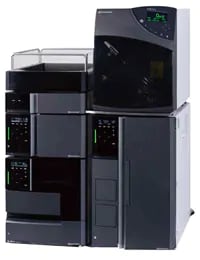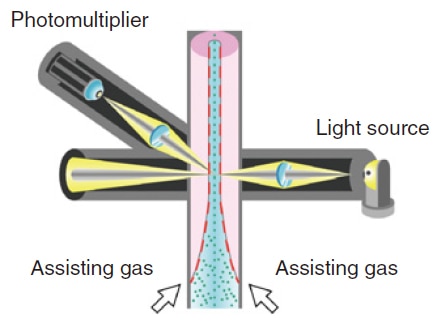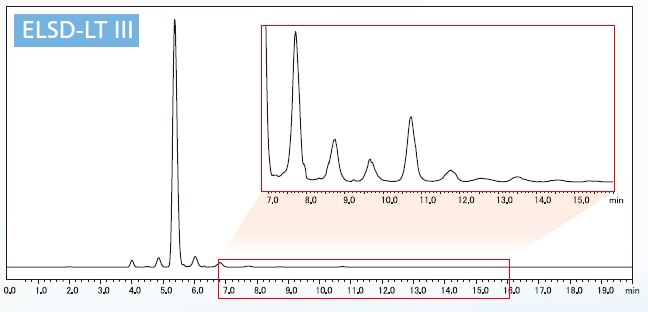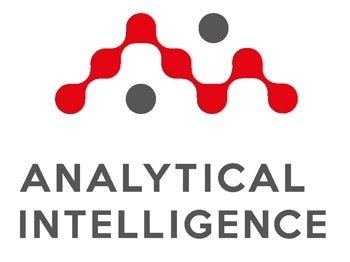ELSD-LT III
Evaporative Light Scattering Detector for HPLC

The evaporative light scattering detector (ELSD) is a general-purpose universal detector that can even detect components with no UV absorption, such as carbohydrates, lipids, surfactants, and synthetic polymers.*
With exceptional sensitivity, a wide dynamic range through Analytical Intelligence features, and easy operability using LabSolutions™ software, the ELSD-LT III contributes to more effective analysis in a wide variety of fields.
*Excluding some volatile compounds
Features
-
ELSDs can detect almost all compounds apart from volatile compounds. They detect irradiated light scattered by microparticles of target components that remain after the mobile phase has evaporated, meaning they can detect the compound which has the poor UV absorption or has that around short-wavelength where is strongly affected by the background absorption of the mobile phase.
-
A high-power laser source offers superior sensitivity not possible with previous ELSD models. The photometricallycontrolled laser ensures that the high sensitivity remains stable over long periods of operation.
-
The ELSD-LT III boasts a compact design with around 2/3 the height of the previous model, and can be installed on top of the LC unit. The width of the whole system is reduced, saving precious lab space.
-
Videos
-
Simultaneous Analysis of 10 Saccharides and Sugar Alcohols in Beverages by Nexera LC-40 and ELSD
This video presents you the simultaneous analysis and separation of 10 saccharides and sugar alcohols in beverages by Shimadzu Nexera LC-40 and ELSD. Saccharides and sugar alcohols show very narrow UV absorption wavelength range, from 190 nm to 195 nm. Therefore, a refractive index detector (RID) is commonly used for this analysis. However, gradient elution cannot be used with RID because the baseline drifting derived from the change of mobile phase composition during gradient elution is unacceptable. So, RID is not suitable for a simultaneous separation of compounds that show widely different retention behaviours due to expected long analysis time without gradient elution. Evaporative light scattering detector (ELSD) is one of universal detector that detects the scattering light from the target compounds after nebulizing and evaporating the mobile phase. ELSD provides reduced analysis time and simultaneous separation of compounds that show widely different retention due to applicability to gradient elution. The performance of Nexera LC40 and ELSD was evaluated by intra-day and inter-day repeatability tests. Good intra and inter-day reproducibility results show the analysis method and systems are very stable.
-
Total BioPharma Workflow | Shimadzu
This video presents Shimadzu's solutions for Total Biopharma Workflow. Currently, the biopharma market is seeing the rise of exciting trends such as innovative biotherapeutics developed to treat illnesses including cancer and autoimmune diseases. However, these biomolecules are much more complex than small molecules and thus difficult to perform extensive analytical characterization.









